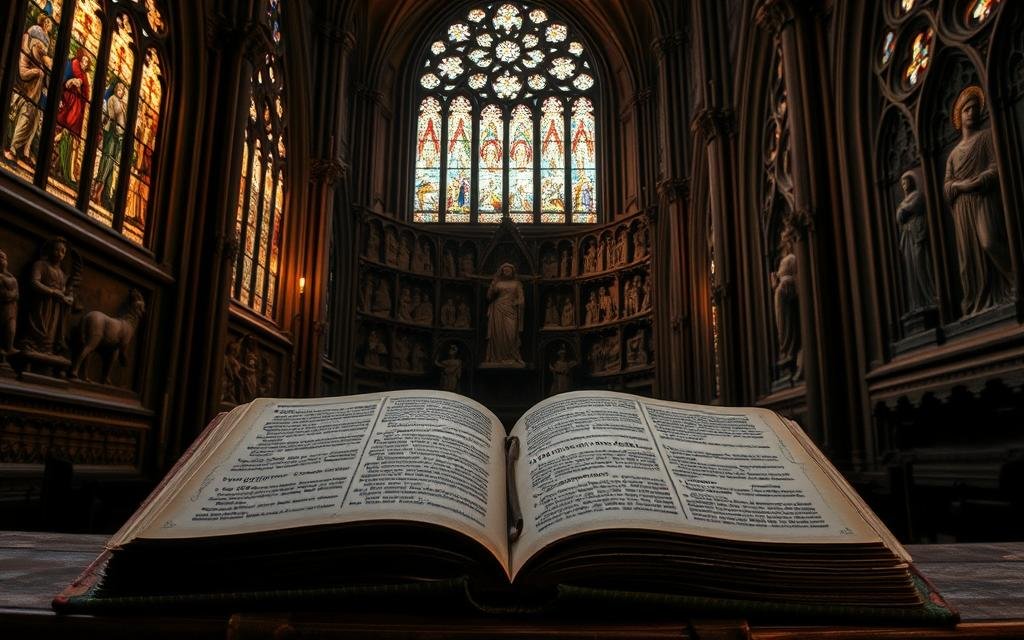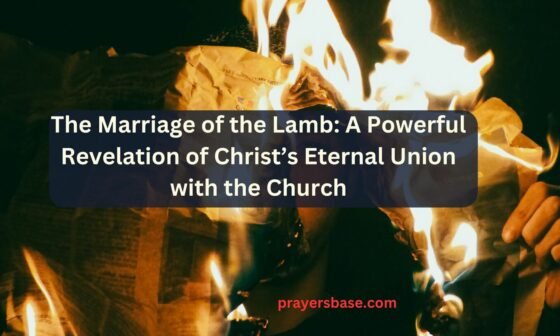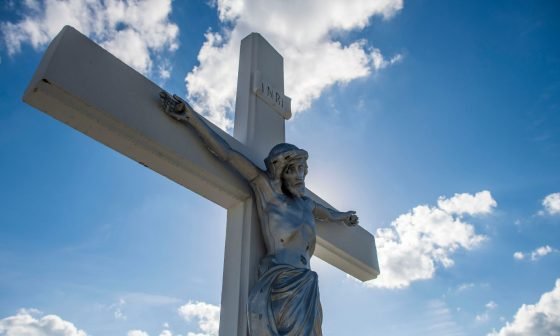Ever thought about where your soul goes after you die? Or if it comes back in another life? Millions worldwide believe in reincarnation. But does Christianity believe in it? Let’s look at what the Bible says.
Reincarnation comes from ancient Eastern faiths like Hinduism. It’s been around for over 3,000 years. But Christianity has a different view. The Bible says, “It is appointed for humans to die once” (Hebrews 9:27). This verse clearly goes against reincarnation’s idea of many lives.
Yet, 25% of U.S. and U.K. Christians believe in reincarnation. This belief doesn’t match any mainline denomination’s teachings. What happens when cultural ideas meet Scripture?
The apostle Paul talked about resurrection, not rebirth. He said it’s God’s promise. As believers, we should seek truth. Is your idea of the afterlife based on the Bible or modern myths?
Let’s explore why reincarnation doesn’t fit with Christianity’s core beliefs. We’ll look at stories like the rich man and Lazarus. They show a final judgment, not endless lifetimes. Your faith needs clarity. Let’s see what the Bible really says.
Understanding Reincarnation and Christian Theology
Let’s explore how faiths see rebirth. In reincarnation and christianity, teachings differ a lot. Eastern traditions like Hinduism believe souls keep coming back, influenced by karma.
Prakesh, a child, remembered past lives in detail. This story is interesting but doesn’t match the Bible. Even early Jewish thinkers like Rabbi Simeon ben Jochai talked about reincarnation, showing it’s been around for a while.
Defining Reincarnation Across World Religions
Reincarnation is a big idea in many cultures. In Hinduism, souls move up or down based on what they do. The christian perspective on rebirth is different, focusing on resurrection, not coming back.
Historical figures like Origen believed in reincarnation at first. But, the Christian faith moved towards resurrection as its main idea. Questions like “Why do some Christians question this?” show how cultural influences have mixed these views.
Core Christian Beliefs About the Afterlife
Christianity says we have one life, one death, and then judgment (Hebrews 9:27). It’s not about cycles but eternal life with God or without Him. The reincarnation in the christian faith isn’t a main teaching.
Jesus said in John 9:2 that suffering isn’t because of past-life karma. Our hope is in resurrection, not coming back.
The Fundamental Theological Differences
- Reincarnation: A soul’s journey through multiple lives to “earn” enlightenment.
- Christianity: Eternal life comes through Jesus’ sacrifice, not past actions. We’re judged once, not reborn.
As we think about this, God’s Word is clear. Life’s purpose isn’t endless cycles but living for Him now. Let’s look deeper into how Scripture talks about these ideas next.
The Official Stance: Does Christianity Believe in Reincarnation?
Exploring if does the bible mention reincarnation shows a clear answer. Christianity does not believe in reincarnation. Big groups like Catholicism and most Protestants agree on this. They say we live once, then face judgment and eternal life.
Church leaders always say this. The Catholic Catechism uses Hebrews 9:27 to explain we live once. In 1991, the Holy See said reincarnation goes against Christ’s resurrection and our accountability.
Why? Our faith says we are saved through Jesus, not by being reborn many times.
- Hebrews 9:27: “It is appointed for man to die once, and after this comes judgment.”
- Psalm 90:10: Life is brief, with no return to earth after death.
- Jesus’ resurrection assures a bodily resurrection, not endless soul cycles.
In 2015, 25% of Christians believed in past lives. But this belief goes against centuries of teaching. Our hope is in Christ’s promise of eternal life through faith, not by earning it ourselves. Let Scripture guide you—God’s Word shows our journey here is a special chance for a relationship with Him.
Biblical Passages Mistakenly Cited as Evidence for Reincarnation
Many Christians wonder if some Bible verses support reincarnation. Let’s examine four passages often misinterpreted. They actually talk about resurrection, not rebirth.
- John the Baptist as Elijah (Matthew 11:14): Jesus said John was like Elijah. This shows spiritual fulfillment, not a soul coming back. Early church leaders like Irenaeus said this, rejecting reincarnation.
- Jesus and Nicodemus’s “Born Again” (John 3:3:) Jesus talked about a spiritual change through faith. This is not about being reborn. It’s a choice to follow Christ, not a cycle.
- Job’s Return to the Earth (Job 1:21:) Job said he came into the world naked. This shows human mortality, not past lives. His words focus on God’s power over life and death, not past lives.
- Paul’s Resurrection Hope (2 Corinthians 5:1-10:) Paul talked about changing bodies. This is about resurrection at Christ’s return, not rebirth. His words show the Christian hope of eternal life, not cycles of rebirth.
These passages show how the Bible and reincarnation ideas differ. By studying these texts, we see the Bible’s clear teaching on resurrection. It shows Christ’s followers hope for eternal life with God, not endless rebirths. As we explore more, we’ll learn how these truths shape our faith today.
Historical Development of Christian Views on the Afterlife
Christian teachings on life after death have changed over time. But one thing is always true: reincarnation in the bible is not part of christian faith and reincarnation talks. From the start, Jesus’ resurrection was the hope, not being reborn again and again. Let’s look at how this belief grew.

Early Church Fathers and Their Rejection of Reincarnation
Leaders like Irenaeus and Tertullian strongly said no to reincarnation. They believed we have one life to choose God and then face judgment. They said Jesus’ resurrection shows God’s plan for just one life.
The Council of Constantinople (553 CE) and Origen’s Teachings
In 553 CE, the church met to talk about Origen’s ideas. Origen believed in souls being reborn, which didn’t fit with the church’s teachings. The council said no to his views, making it clear that christian faith and reincarnation don’t mix.
Medieval Christian Thought on the Soul’s Journey
Thomas Aquinas and others in the Middle Ages talked more about resurrection. They said souls wait for Christ’s return for a final resurrection. This kept the idea of one life and final judgment strong, shaping beliefs about heaven, hell, and purgatory.
Resurrection vs. Reincarnation: Key Theological Distinctions
Exploring christianity views on reincarnation shows how resurrection is different. Let’s understand these differences. The Bible says resurrection means your body waits until the end, when God makes it new again (Daniel 12:2).
Here’s what makes resurrection special:
- Resurrection keeps your unique identity. Your soul and body stay together forever, not lost in cycles.
- Jesus’ resurrection proves this truth—He showed His healed, transformed hands and feet (Luke 24:39).
- Reincarnation focuses on karma, unlike Christ’s grace. Salvation isn’t earned through lifetimes but given through faith (Ephesians 2:8-9).
God’s plan is not endless rebirth but eternal life in Christ. The christian perspective on reincarnation rejects cycles of reincarnation. Your one life is precious. You’re here to trust Jesus’ promise of a new creation (2 Corinthians 5:17).
Scripture says, “It is appointed for humans to die once” (Hebrews 9:27)—no do-overs. This truth is important. It tells us to live fully now, knowing our choices here shape our eternal home. If you’ve wondered, “does christianity believe in reincarnation,” remember: our hope rests in resurrection’s finality and Jesus’ victory over death.
Gnostic Christianity and Alternative Views on Rebirth
Ever thought about how early Christianity groups saw the soul’s journey? Mainstream beliefs and reincarnation don’t mix, but some groups looked beyond. The nag hammadi texts, found in 1945, show gnostic groups like the Carpocratians believed in reincarnation. They thought it was a way to free the soul, unlike what most Christians believe.

The Nag Hammadi Texts and Reincarnation Concepts
- Groups like the Cathars and Bogomils saw rebirth as a way to grow spiritually.
- The Apocryphon of John talks about souls stuck in bodies, trying to break free through many lives.
- Origen of Alexandria, a 3rd-century thinker, didn’t agree with these ideas. He stuck to what the Bible says.
Why Gnostic Teachings Were Rejected
Early church leaders like Irenaeus said gnostic views were wrong. They gave a few reasons:
- They didn’t fit with Jesus’ resurrection as the only way to be saved.
- They saw the body as bad, which goes against the Bible’s view of creation.
- These ideas were banned at councils like Constantinople (553 CE), because of Origenism).
Even though these views are not widely accepted today, they left a mark. They show how different beliefs have shaped Christianity. As we dive deeper, you’ll see how these debates have influenced what the faith teaches now.
Modern Christian Denominations With Varying Perspectives
When you ask does christianity believe in reincarnation?, most say no. But 24% of U.S. Christians say yes. This shows how views are changing. Let’s look at how churches deal with this today.
Orthodox and Catholic Positions
Eastern Orthodox and Roman Catholic churches say no to reincarnation. The Vatican’s Catechism says the soul goes straight to God after death. They believe in resurrection, not living many lives.
Protestant Viewpoints
- Mainline Protestants like Methodists and Presbyterians believe in resurrection. They don’t think in terms of rebirth.
- Some Pentecostal and charismatic groups talk about spiritual “rebirth.” But they don’t mean physical reincarnation.
- Lutheran and Baptist churches focus on Hebrews 9:27. It says we die once and then face judgment.
Liberal Christian Interpretations
Small groups, like some Unity Church or metaphysical communities, mix Eastern ideas with Christianity. They see Jesus’ miracles as signs of spiritual growth. But these views are not common—90% of denominations worldwide don’t see reincarnation as a main teaching.
The debate on reincarnation in christianity goes on. But the Bible’s story of life, death, and resurrection is key. Your faith journey can explore these ideas while staying true to Scripture’s promises.
Why the Concept of Reincarnation Conflicts With Core Christian Doctrine
More Americans are looking into spiritual ideas. They wonder about christian beliefs on reincarnation. But, Christianity says eternal life comes from one journey. Let’s see why reincarnation and christianity can’t mix without changing key beliefs.

Scripture says life is a one-time chance. Hebrews 9:27 says, “It is appointed for man to die once, then comes judgment.” This shows one life leads straight to eternity—no going back. The christian perspective on rebirth says no to reincarnation because it changes Jesus’ sacrifice. If rebirth were true, Christ’s death wouldn’t fully forgive sins. His resurrection alone wins over death, making extra lives not needed.
- Reincarnation’s cycles suggest gradual growth, but Christianity says salvation is a free gift (Ephesians 2:8-9).
- Karma’s cause-effect system goes against God’s grace—salvation isn’t earned through lifetimes but given through faith in Jesus.
- Eastern beliefs often see life as a loop, while Scripture shows life as a straight path toward heaven or eternity with God (Revelation 21:4).
Think about this: If reincarnation were true, Jesus’ sacrifice wouldn’t be powerful. Our redemption depends on His once-for-all sacrifice, not endless rebirths. The Bible’s message is clear—God’s plan offers eternal life through faith, not cycles of karma. Let these truths help you as you explore today’s spiritual questions.
The Role of Cultural Exchange in Shaping Christian Beliefs About the Afterlife
Exploring reincarnation in the christian faith shows cultural exchanges are key. Does the bible mention reincarnation? No. But, history shows how other traditions have shaped our beliefs. These interactions have helped define what it means to follow Christ.
Early Christians faced Greek philosophy, where Plato talked about rebirth. But, leaders like the Council of Constantinople in 553 CE said no. They made it clear that resurrection, not reincarnation, is our faith’s core.
So, how did this happen? Let’s look:
- Hellenistic Roots: Greek ideas influenced early debates. But, theologians like Augustine focused on Jesus’ bodily resurrection. This shaped christianity and past lives discussions long before modern times.
- Eastern Traditions: Hinduism and Buddhism raised questions. Missionaries and scholars showed how God’s plan for eternal life is different from cycles of rebirth.
- New Age Trends: Today, some look into past lives. But, scripture points to resurrection. Paul’s writings in 2 Corinthians 5:1-10 talk about our future hope in new bodies, not recycled existences.
These exchanges remind us: even as cultures change, God’s Word stays the same. While others talk about rebirth, we find hope in eternal life in Christ. Let’s stay true to God’s Word while loving and engaging the world.
Addressing Common Misconceptions About Christianity and Reincarnation
Exploring christian doctrine on reincarnation can lead to confusion. Let’s clear up three big misunderstandings. First, some think Matthew 16:13-14 talks about reincarnation. But, it really shows people thought Jesus was a resurrected prophet, like John the Baptist. Our faith is about resurrection, not being reborn.
Second, reincarnation in christian theology gets mixed up with near-death experiences (NDEs). Many NDE stories talk about past lives. But, Catholic teaching says these are spiritual visions, not proof of rebirth. Hebrews 9:27 says we die once and then face judgment.
Third, some think reincarnation is fairer than resurrection. But biblical views on reincarnation say no. Our souls wait for resurrection in Christ’s victory over death.
Let’s look at some common myths:
- Scripture’s “past life” references (like Job 14:14) question existence after death, not advocate rebirth
- Early church figures like Origen debated reincarnation, but official doctrine rejected it by the 6th century
- NDEs are profound, but they don’t override Christ’s promise of resurrection
As we explore these ideas, remember God’s Word guides us. Let’s talk with curiosity and kindness. Scripture shows us the way to eternal life. The
What Christians Do Believe About the Soul’s Eternal Journey
Ever wondered what happens after we die? The idea of reincarnation in the bible is debated. Yet, the christian faith and reincarnation are very different. Let’s look at what the Bible says about eternal life.
God’s plan is not about being reborn over and over. It’s about a journey to him. The Bible gives us hope for this journey.
The Concept of Eternal Life
Eternal life begins when we believe in Jesus (John 3:16). It’s not about being reborn many times. It’s about a deep connection with God.
The christianity and the concept of rebirth is about spiritual renewal. It’s being “born again” through faith in Christ. After we die, our spirits go straight to God (Ecclesiastes 12:7).
Most believers don’t believe in reincarnation. They trust in resurrection as God’s promise instead.
Heaven, Hell, and the Intermediate State
Believers go to heaven after death (2 Corinthians 5:8. Non-believers face judgment (Revelation 20:11-15. There are no second chances through rebirth cycles here.
Hebrews 9:27 says, “It is appointed for men once to die, then judgment.” This is different from reincarnation’s endless cycles. The Bible is clear: one life, one judgment, and then eternal destiny.
The Christian Hope of Bodily Resurrection
Scripture talks about two resurrections. The first is for believers (Revelation 20:4-5. They will have a glorious transformation of their bodies (1 Corinthians 15:52. This is different from reincarnation’s endless cycles.
Jesus’ resurrection proves this promise. Our bodies will be renewed, not recycled. As Daniel 12:2 says, some will rise to everlasting life, others to shame—a final end, not endless starts.
Conclusion: Reconciling Faith Traditions in a Diverse Spiritual Landscape
Christianity teaches that we only have one life. The Bible says we get eternal life through Jesus. But, 28% of U.S. Christians believe in reincarnation.
We must share the truth of resurrection with love. We should not judge others. The Bible is clear: no reincarnation.
Resurrection vs. reincarnation is more than a debate. It’s about living with purpose today. The Bible warns us against thinking we’ll get another chance.
Choosing this life wisely is important. Many people, like 45% of nonreligious adults, believe in an afterlife. We can talk about resurrection’s hope while respecting others’ beliefs.
Early Christians did not believe in reincarnation. Yet, today’s world needs honest talks. Over half of global Christians want faith that fits their culture.
We must stay true to Scripture. The Bible’s promise of resurrection offers hope beyond cycles. Let’s share this truth boldly and kindly. We’re all searching for meaning beyond this life.
FAQ
Does Christianity believe in reincarnation?
No, traditional Christianity does not believe in reincarnation. It focuses on resurrection and eternal life, as the Bible teaches.
What is the Christian understanding of life after death?
Christianity says after death, people face judgment. They either get to be with God forever or are separated from Him. It’s not about living many lives.
Are there any biblical verses that suggest reincarnation?
Some verses seem to hint at reincarnation. But, looking closer, they really talk about resurrection. For example, John the Baptist and Elijah.
How do early Church Fathers view reincarnation?
Early Church Fathers did not believe in reincarnation. They believed in one life, followed by judgment and eternal life.
What are key theological distinctions between resurrection and reincarnation?
Resurrection is a single event leading to eternal life. Reincarnation is a cycle of rebirths. They differ in how they see human identity and God’s purpose.
What role did Gnostic Christianity play in beliefs about reincarnation?
Some Gnostic texts talked about reincarnation. But, mainstream Christianity rejected these ideas because they didn’t match the Bible.
How do modern Christian denominations approach the idea of reincarnation?
Most Orthodox, Catholic, and Protestant churches don’t believe in reincarnation. But, some liberal groups might explore it. This is not common, though.
Why is reincarnation incompatible with Christian doctrine?
Reincarnation goes against key Christian teachings. It challenges ideas about salvation, judgment, and Christ’s sacrifice. It offers a different view of sin and growth.
How have cultural exchanges influenced Christian views on the afterlife?
Early Christianity met with Hellenistic philosophy and Eastern religions. Yet, it kept its unique view on resurrection. This includes talks with New Age spirituality today.
What are common misconceptions about Christianity and reincarnation?
Misunderstandings come from misreading scripture and pop culture. Clearing up these points helps show the difference between Christian resurrection and reincarnation.
What positive vision does Christianity offer about the afterlife?
Christianity offers hope for eternal life with God. It’s through bodily resurrection, which changes and perfects us. It’s not about recycling souls through many lives.







